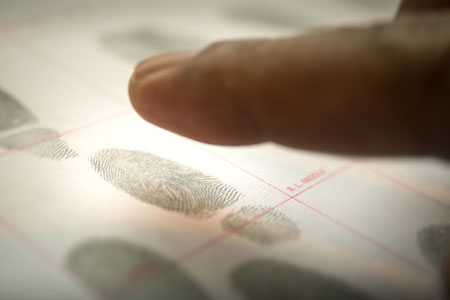
Updated 11-12-20. California has the most extensive and sweeping Notary requirements for recording signers’ thumbprints. But not all notarizations require you to take a thumbprint. In fact, California Notaries are expected to exercise judgment when it comes to meeting those requirements.
Here’s what you need to know:
What the state requires
California Notaries are required to record the signer’s right thumbprint in their Notary journals whenever they notarize any of the following documents:
- A power of attorney
- Deed
- Quitclaim deed
- Deed of trust
- Any other document affecting real property
A journal thumbprint is not required for deeds of reconveyance and trustee’s deeds resulting from a decree of foreclosure or a non-judicial foreclosure. Most of the documents are simple and straightforward. The challenge comes with determining other documents affecting real estate.
How to decide what affects real property
The law in this respect is quite broad, and even a partial list of documents that would require thumbprints runs for pages. Here are a few examples:
- Affidavit of Continuous Marriage
- Homestead Declaration
- Memorandum of Option
- Notice of Non-Responsibility
- Name Affidavit
These are just a few that could be part of loan packages, real estate transactions or otherwise involve real estate. Because so many different types of documents potentially involve real estate, there are a number of things to keep in mind when deciding if a thumbprint is required.
You should not read the entire document. Instead, when you are going through your normal process of checking the document during a notarization for such things as the title, blank spaces, certificate wording, etc., look for signs that it relates to real estate. These could include:
- An assessor’s parcel number;
- A legal property description;
- A space in the margin reserved for a recorder’s use; or
- A cover sheet that includes information for a recorder.
Estate-planning documents, such as wills, codicils and trusts, also could potentially involve real estate. If you are unsure whether a document involves real estate, the standard of professional practice is to collect the thumbprint. It is better to err on the side of caution. Remember, collecting the thumbprint is to protect against fraud. In addition, if the Secretary of State ever looks at your journal, you’ll want to have thumbprints for those entries that require them.
If the signer refuses to leave a thumbprint
It is possible that a signer could insist that the document does not involve real estate and refuse to leave their thumbprint. This is a judgment call. If you are satisfied with the signer’s explanation, you can opt not to collect their thumbprint. Just make sure to note the signer’s explanation in your journal entry.
If the signer’s explanation does not satisfy you, you should refuse to notarize the document.
A signer may object to leaving their thumbprint for privacy reasons. You can explain that your journal is locked in a secure location when not in use, and you maintain strict control over it. Also remind them that their entry can only be accessed by others under limited circumstances:
- Seizure of the journal by law enforcement;
- A court subpoena or written request by the Secretary of State to provide certified copies of journal entries; or
- A specific, written request from a member of the public to provide a copy of a journal entry.
Thumbprint recording tips
When it comes to collecting the thumbprint, state law stipulates the right thumb. If there is a reason you cannot use the right thumbprint, the left thumbprint is the next option. After that, you may use any available finger. And note this in the journal. If the signer is physically unable to leave a thumbprint or a fingerprint, then note the reason in the journal entry.
Here are a few other tips to keep in mind:
- Always have a back-up thumbprint pad, and make sure to keep the pads sealed when not in use so they don’t dry out.
- Keep a container of wet wipes handy.
- Have the signer press down gently so the impression does not smudge.
- If the thumbprint is smudged, have the signer make another impression.
- Make sure you have a journal where the space for the thumbprint is along the right margin so it is easy to make the impression.
Related Articles:
Am I still required to take thumbprints during the COVID-19 crisis?
Additional Resources:
California Notary Public Resources
Professional Inkless Thumbprinter